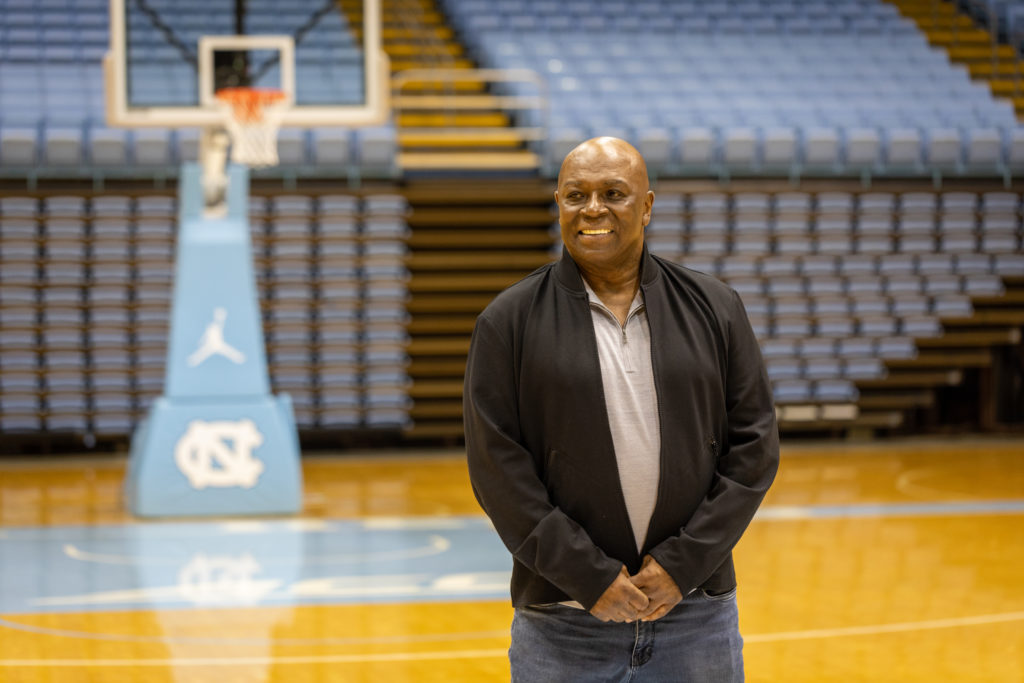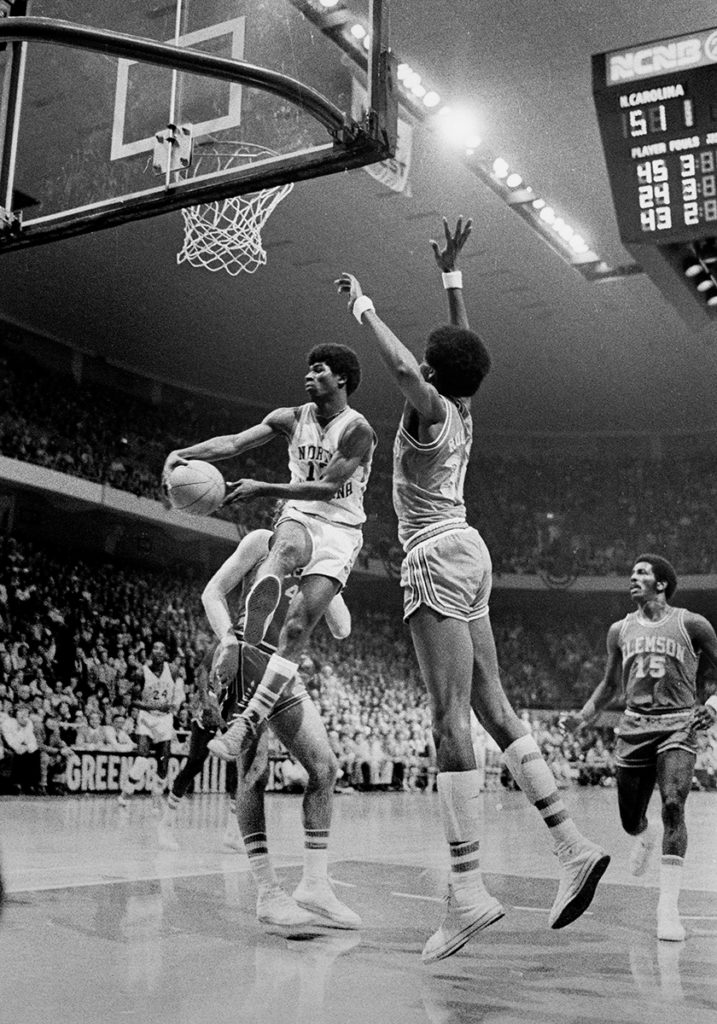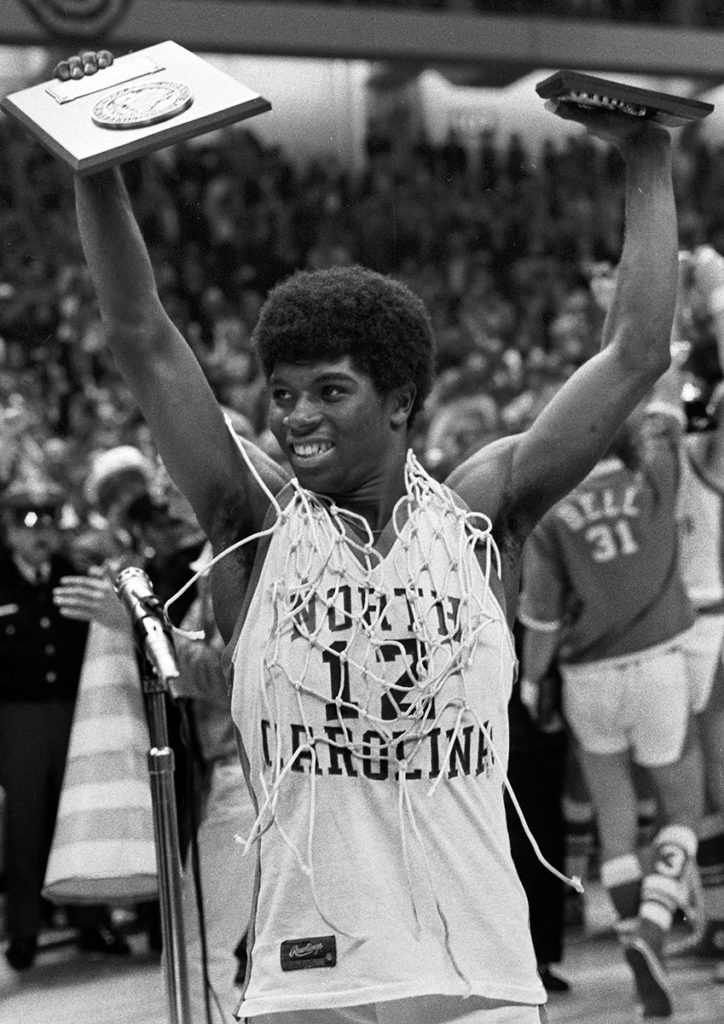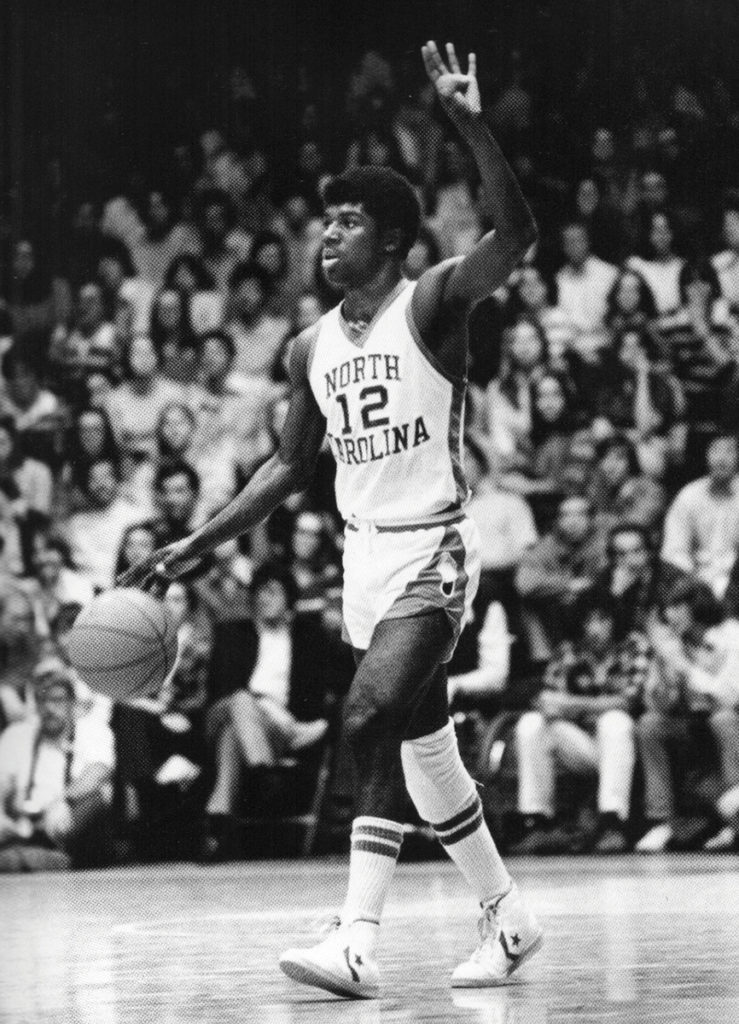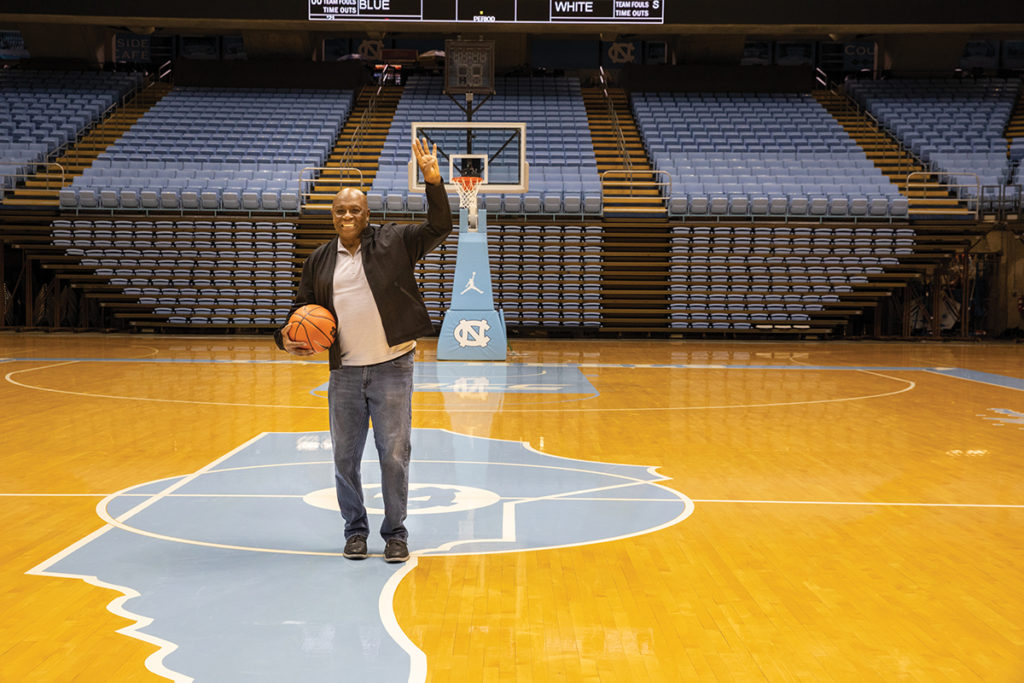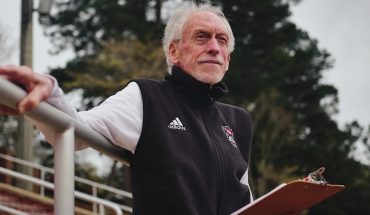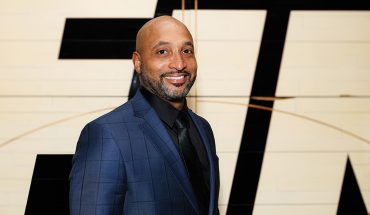The Rocky Mount native was a powerhouse point guard in the 1970s, known for vexing players with the Four Corners offense.
by A.J. Carr | photography by Forrest Mason
Phil Ford arrived early for our noon appointment, as if still heeding the advice to never be late from former University of North Carolina at Chapel Hill basketball coach Dean Smith.
Since hearing those words more than 45 years ago, Ford has made a point to be punctual. He sets his watch 10 minutes ahead to avoid being tardy for engagements of any kind.
During his days at Carolina, he listened to all his venerable coach’s instructions, applied his God-given talents and “arrived early” in the sphere of college basketball stardom. “I always wanted to go to Carolina,” he says. Ford excelled as a freshman and emerged into a model point guard in 1975.
At 6 feet 2 inches and 175 pounds, he could score on darting drives to the rim, swish pull-up jumpers and make spinning 360-degree layups. A deft ball handler, Ford adroitly guided talented Tar Heel teams, dishing out assists as well as scoring and playing dogged defense.
“Phil was sensational with the ball, smart, dedicated and great in the clutch… almost impossible to stop one-on-one,” Smith wrote in A Coach’s Life: My 40 Years in College Basketball, a 2002 memoir he wrote with Sally Jenkins and John Kilgo.
“He could do it all… but his intelligence was even more impressive than his physical skills. By his junior year he became so much in sync that often when I would signal a play from the bench, Phil would have already called it. I learned to just sit and let Phil handle it.
Phil personified Carolina basketball as much as any player ever,” Smith noted. Ford helped UNC win three Atlantic Coast Conference regular season titles, two league tournaments and advance to the 1977 National Championship game.
Along the way he accumulated individual honors, including three-time All-America, twice consensus first team; three-time All-ACC and one-time ACC Player of the Year; 1978 National Player of the Year; and 1976 Olympic Gold medal on the U.S. team coached by Smith.
That success didn’t affect his humility. Ford never flaunted his awards and is still self-effacing, amiable and as approachable as when he was playing.
“He’s the most humble person I’ve ever run across,’’ says former teammate Dave Hanners. “In his presence he makes you feel like you are special.”
There was a time — growing up in Rocky Mount — that Ford couldn’t envision any of this happening at UNC. Not until Charlie Scott became the first Black scholarship athlete to play for the Tar Heels did his hope of attending Carolina heighten.
He “wanted to be the next Charlie Scott,” Ford says. (Later, no doubt, many young basketball players wanted to be the “next Phil Ford.”)
“When I met Coach Smith, that did it,” says Ford, who was ranked as a top point guard prospect and widely recruited. “I trusted him, knew I would get better, and have a friend for life.”
Ford’s parents were teachers, and he remembers his mother being especially impressed with Smith, thinking the “Dean of the College” was recruiting her son, Ford says. She was obviously delighted about his decision to sign with Carolina. So is Ford, who describes his college experience as good academically, athletically and socially.
As a precocious freshman, he led Carolina to the 1975 ACC Tournament title with a win over rival North Carolina State University in the finals and won the MVP trophy. It was the start of his auspicious career, with more titles and accolades to come.
Ford seemed impervious to pressure, exuded a youthful joy on the court and inspired teammates with his spirited style and skill. He averaged between 16.4 and 20.8 points from his freshman to senior season and set the all-time UNC record for scoring (2,290 points) and assists (753) — records later broken.
“His game was quickness and speed,” says John Kuester, his former teammate and roommate. “He could get into the teeth of a defense and score in uncharacteristic ways. He always wanted to win and believed he would win.”
Ford was mentally tough and resilient. In one game he got a tooth knocked out, caught it in his hand, dribbled down court, gave it to a trainer and kept playing. He didn’t have time for medical attention.
He vexed opponents in different ways at different speeds, by pushing the pace or orchestrating the famed Four Corners offensive strategy, which was designed to preserve leads in the era before the shot clock.
That delay game frustrated opposing coaches and tantalized players who guarded him. Foul him and he would make free throws. While surrounded by gifted teammates, Ford was the engine that made the offense run.
“In the Four Corners I would fold my arms and cross my legs, because the game was over,” Smith wrote.
As good as Ford’s life was at Carolina, there were disappointments, none worse than the close loss to Marquette in the 1977 championship game. Ford, playing with an elbow injury, says that defeat is still a recurring nightmare more than four decades later.
But there was more basketball to play. The overall No. 2 NBA draft pick, Ford had three productive seasons with the Kansas City Kings. Then adversity struck. He suffered a serious eye injury, from which he never fully recovered, and his performance declined over the next several years.
To further complete matters, Ford succumbed to alcoholism. While confronting that demon, he served as an assistant at Carolina from 1988 to 2000 and for several NBA teams.
During his personal battle, he consulted Coach Smith, who he knew as a “spiritual man.” He received counseling. He attended AA meetings. But Ford says it wasn’t until he turned his life back to God that he was rescued from the grip of alcohol.
“My faith is the most important thing in my life,” he says. “That has helped me overcome demons.”
Ford has been sober for several years and references a go-to Bible verse that helps him daily, Proverbs 3:5-6: “Trust in the Lord with all your heart and lean not on your own understanding. Submit your ways to him and he will make your paths straight.”
Since his recovery, he has shared his faith and story at Fellowship of Christian Athletes banquets and for other organizations. He serves on rehabilitation boards.
In 2013, he co-authored a children’s book — The Kid Who Couldn’t Dunk — with veteran writer Art Chansky. Once upon a time, Ford was that kid, until he finally “squeezed” the ball over the rim once at a high school pep rally.
“Phil has the ability to touch a lot of people,’’ Kuester says.
Now 66, Ford attends Carolina basketball practices and games in the Dean Dome, where his honored No. 12 jersey hangs. He applauds the coaching and leadership of Hubert Davis.
“I’m as proud of last year’s [NCAA runner-up] team as any Carolina team,” Ford said. “I don’t know if a lot of coaches could have held that team together.” He figures “12-13 teams” could win the title this year” — including his Tar Heels.
Though never trying to draw attention to himself, yet still admired and much acclaimed, Ford’s name and fame continue to spread 45 years after playing his last game at Carolina. Not surprisingly, his picture appears on the T-shirts of “Iconic Heroes,” a legacy brand company honoring the greatest athletes in the state’s history. It’s well deserved.
This article originally appeared in the February 2023 issue of WALTER magazine.

